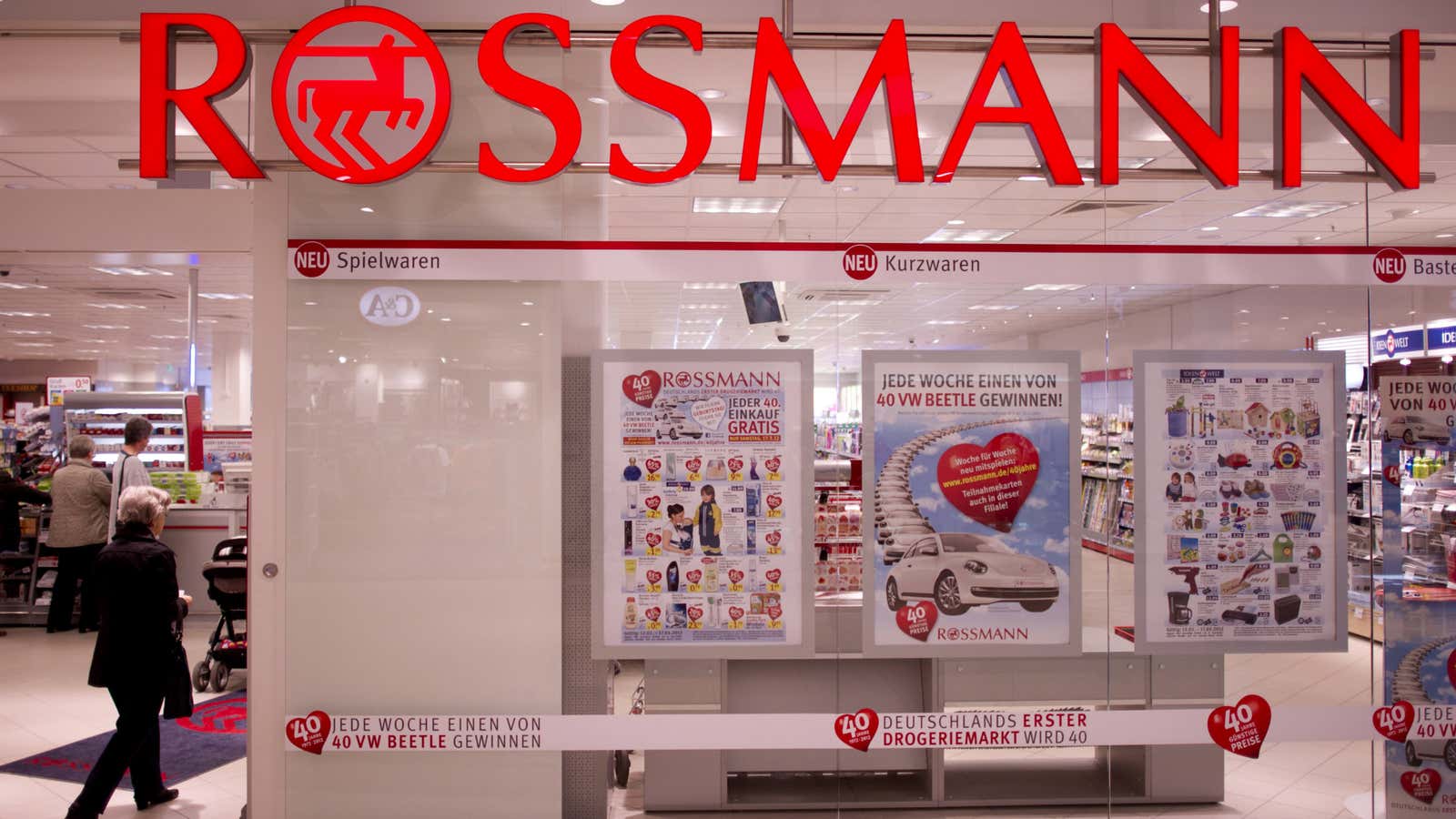Germany has been struggling to adapt its 60-year-old system for financing public broadcasting to the 21st century, and it isn’t going too well. German companies are up in arms over a new fee structure, under which every household must pay a monthly license fee of €17.98 ($23.45), while businesses pay one determined by the number of store branches, employees, and company cars they have. For some this means steep increases. The drugstore chain Rossmann has filed a lawsuit after seeing its bill go from €39,500 to €200,000.
The fees, introduced in the 1950s when only public broadcasters were around (private ones are funded by advertising and subscription sales), guaranteed that every household could receive broadcast service. Since then, the fees, determined by an independent commission, have been rising every couple of years due to increasing production costs and expensive broadcasting rights.
Until the new rules took effect at the start of this year, German consumers had to pay a fee based on the number of devices they owned, regardless of whether or when they used them, or even whether they used them to access public broadcasting. The fee since 2009 had been €5.76 a month for a radio and/or a computer with internet access, and €12.22 for a TV. As smartphones and other mobile devices proliferated, leaders of the 16 German Länder (states) agreed that it was time for a change.
But the new system creates many winners and losers. Someone who owns a lot of devices saves money with the flat fee, which equals the previous rate for a radio and/or computer plus a TV; but people who only have a smartphone or laptop, or who have no media devices at all, must pay the same. And for those who only use the internet, public-broadcast content is likely to be a pretty small share of what they watch online: For years, public broadcasters have been fighting for a young audience that just doesn’t seem to be interested.
Companies too feel the new system is unfair. Rossmann sees itself as disadvantaged (link in German) because it has around 1,700 small store branches. In its lawsuit, the company also says that classifying branches as places to receive broadcast content is absurd, because its employees don’t really go to work to watch TV or listen to the radio. Rental car company Sixt is also considering a lawsuit.
Within Europe, Germany’s fees are average. Switzerland asks €385 and Austria €278 a year, while German public broadcasters charge €215. Still, Germans have to pay more than the British (€179), French (€129), and Italians (€110).
In Germany, members of the opposition Liberal Democratic Party have criticized the broadcasters’ “self-service mentality,” while the Green Party suggests a reassessment (German). Several cities have started complaining, too, claiming that the new costs for their civic institutions are as much as 13 times higher than they used to be. The state of Schleswig-Holstein has said it will examine the new funding system. Maybe the others should follow suit.
